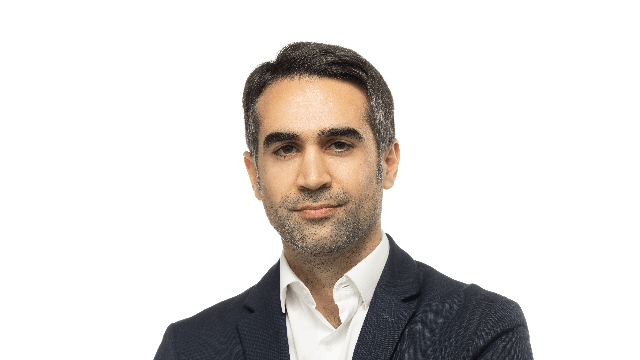Mickaël Berrebi (E13): ‘We Have the Solutions to the Current Violence’
Mickaël Berrebi (E13) has written Un monde de violences, et après ? [A World of Violence, What Comes Next?] with Jean-Hervé Lorenzi, published by Éditions Eyrolles. The follow-up to a work published 10 years ago, in which the predictions of a world on the brink of upheaval have proven all too true. He anticipates new crises at present, but refuses to be fatalistic. Interview.
EA: What made you decide to produce a sequel to your first opus, published 10 years ago?
Mickaël Berrebi: At that time, we warned of a world on the brink of upheaval. In our view, the economic lay of the land was conducive to both trade and physical conflict. We also predicted a period between 2015-2030 marked by a rise in violence and wars. These predictions have regretfully come true today. This is why we thought it essential to produce a follow-up. On one hand, to take stock of what we had anticipated; and on the other, to carry a call for action. It is not simply a matter of warning, but of suggesting a solution. Therefore, after a first section which describes the six constraints weighing on the world's economy, and which we believe to be the source of violence, the second part of the book presents 14 concrete, lucid and resolutely constructive leads on the situation, to prevent current imbalances from transforming into chaos.
EA: Which of your predictions for 2015-2030 have come true?
M. Berrebi: We predicted a more violent, unstable world. The return of war in Europe sadly proved us right. Other predictions also came to be, however. We anticipated a deepening of inequality which could engulf societies. In France, the phenomenon was illustrated by the Yellow Vests movement. We claimed the financial sector would preserve its all-encompassing power, despite the promises of regulation made after the 2008 crisis. We also evoked a dual momentum: on one hand, the hope of reindustrialisation in Western countries, and on the other, the trade war this risks triggering. Lastly, we predicted a rise in interest rates, linked to a scarcity in savings and the massive investment required to fund major transitions.
EA: Conversely, what events did you not foresee?
M. Berrebi: Our first book obviously wasn’t intended to predict all the events of the last ten years. That said, even the most unexpected events of this period ultimately stem from the momentums we identified. The COVID-19 health crisis, for example, which took the whole planet by surprise, worsened intergenerational tensions around debt, pension funding and expenditure linked to health and dependency, which we analyse in our book. Another example is the rapid progress of artificial intelligence, which caught the world off guard, has come up against the downturn in productivity gains, which we evoke in our work.
EA: According to your book, ageing populations and the downturn in productivity gains are among the 6 constraints shaping the world. What are the four others?
M. Berrebi: We also have the rapid rise in inequality worldwide, the deindustrialisation shock which began in the 1980s, the financialisation of the economy, or dwindling resources for investment in risky, innovative and long-term projects.
EA: How do you suggest we react to all this?
M. Berrebi: We suggest 14 pillars of action, in areas as diverse as youth, optimal distribution between wages and profits, immigration, artificial intelligence, access to water, big tech, succession rules, debt management, globalisation, etc. Beware, however: it is not enough to just apply a handful of our proposals; they are designed as a single block, for systemic change. They are also disruptive; in other words, they form a radically different approach from what is being done at present. One last key point is that we insist on the idea of ‘locality’. Put another way, we refuse to be fatalistic, and believe that each group of humans must rapidly reappropriate their own destiny, to contribute to calming our society.Interview by Louis Armengaud Wurmser (E10), Content Manager at ESSEC Alumni
Do you want more content? Join us now so that we can keep bringing you news about the ESSEC network.

Comments0
Please log in to see or add a comment
Suggested Articles




